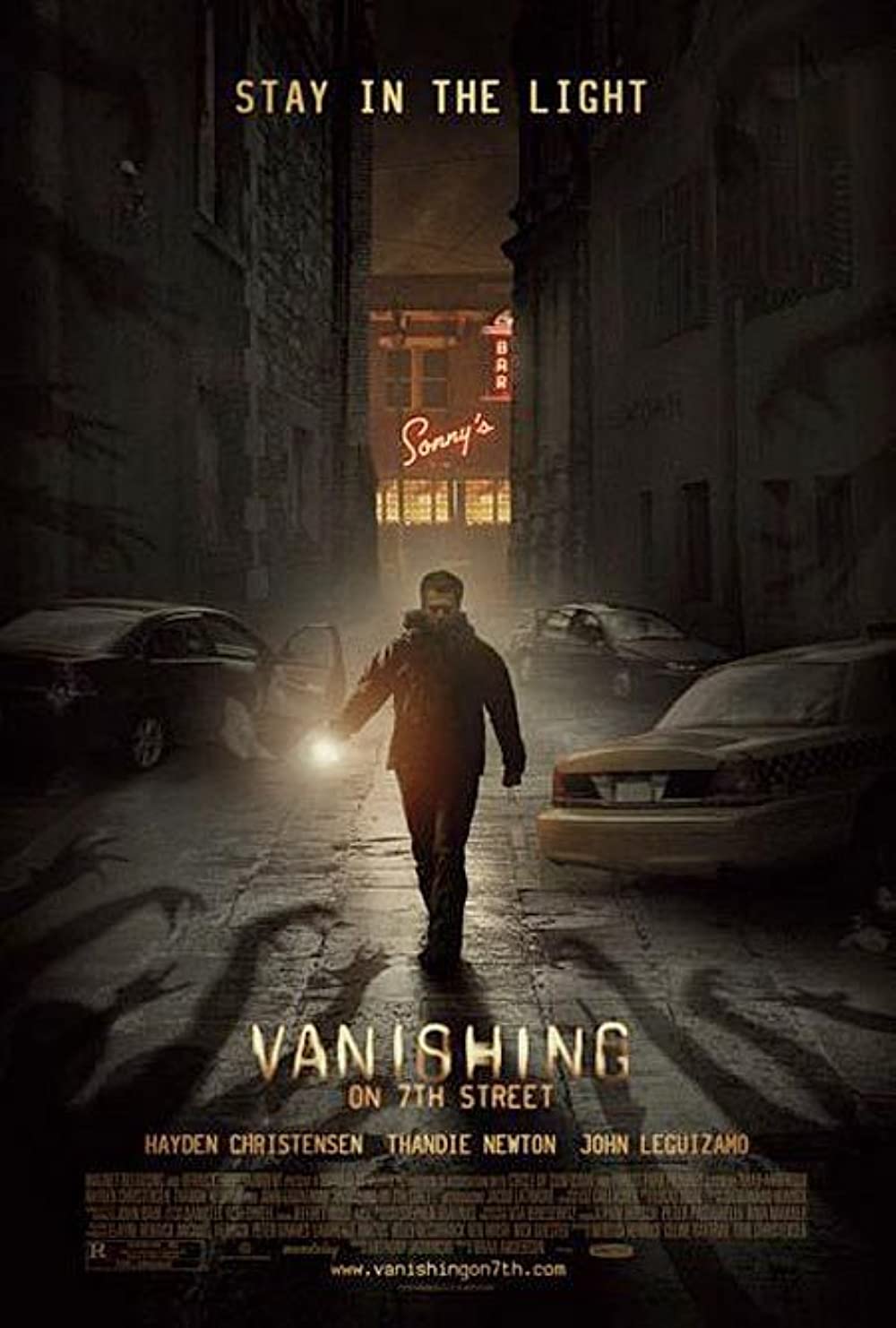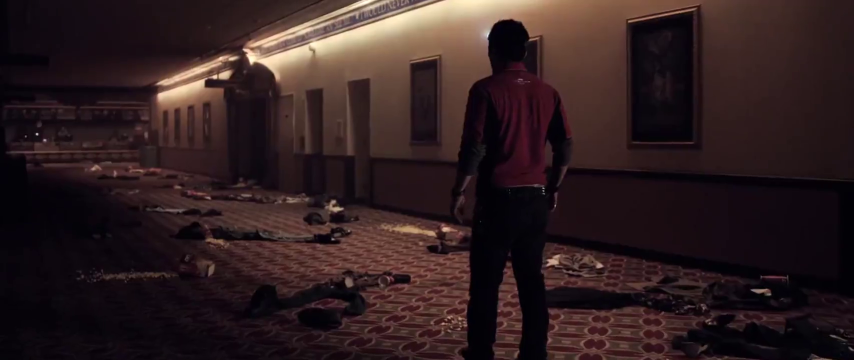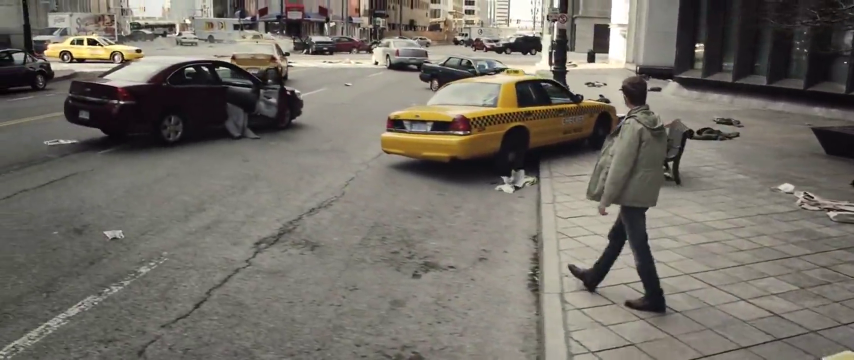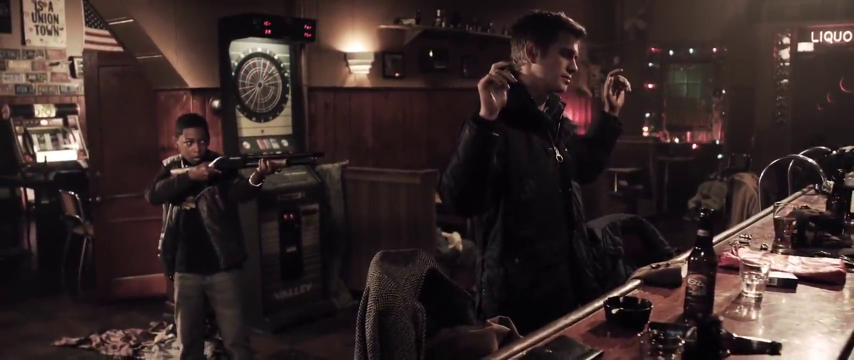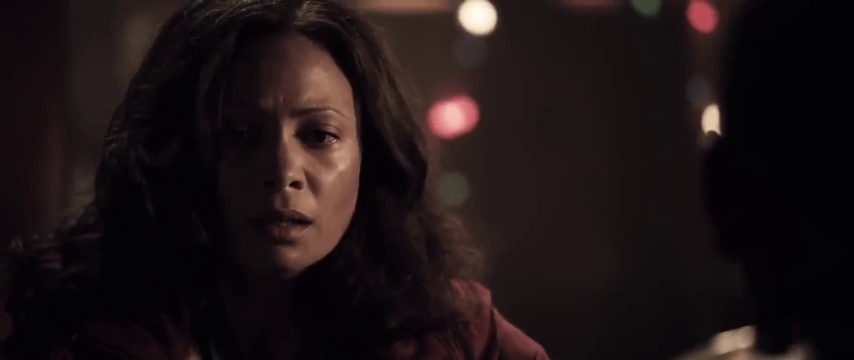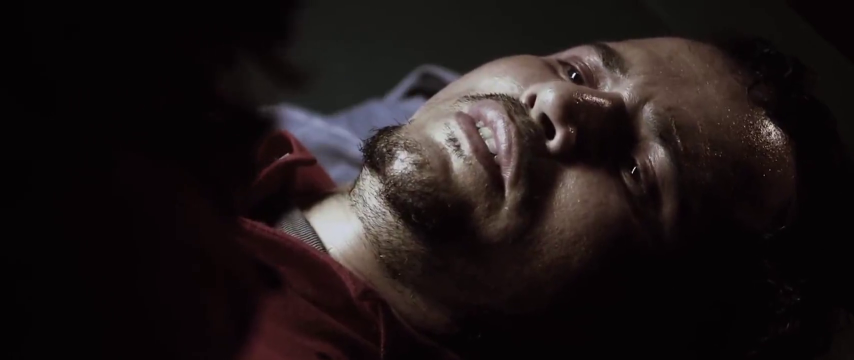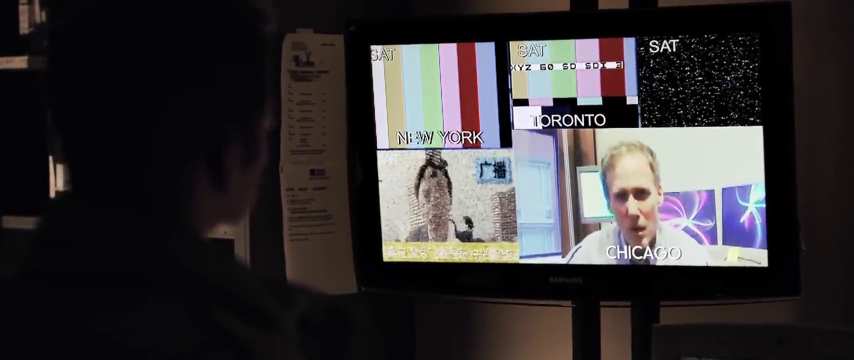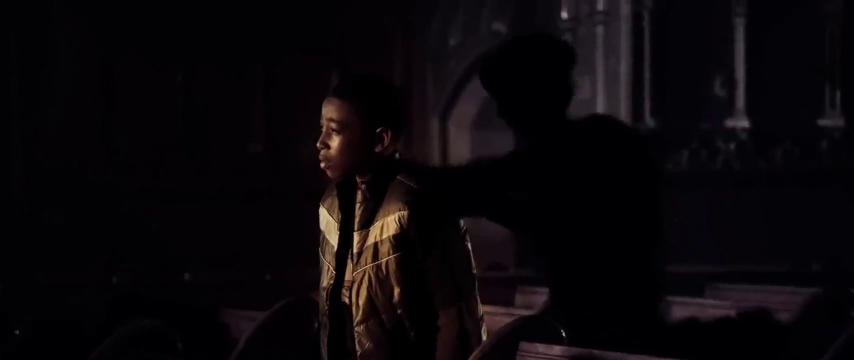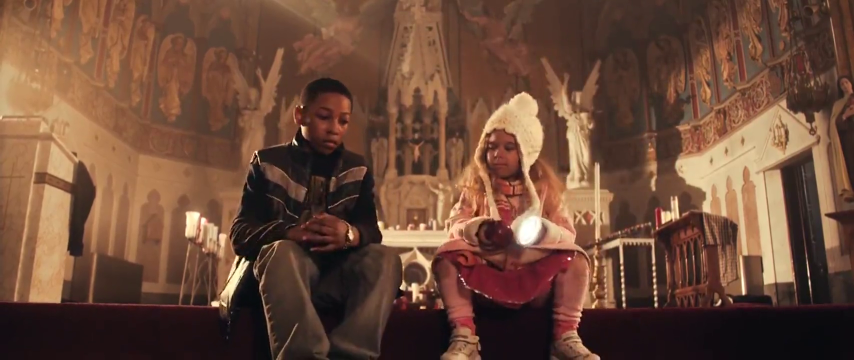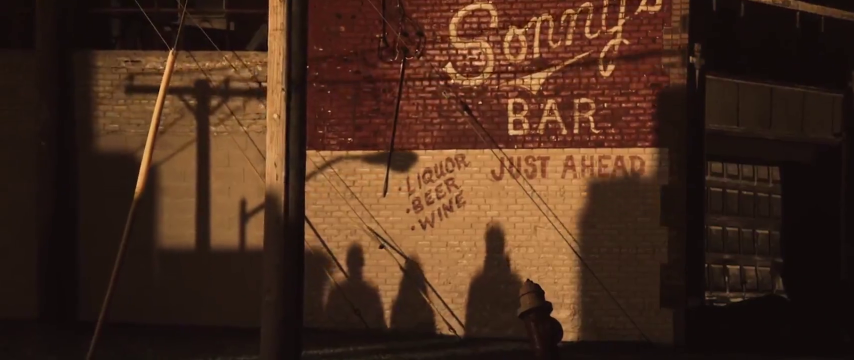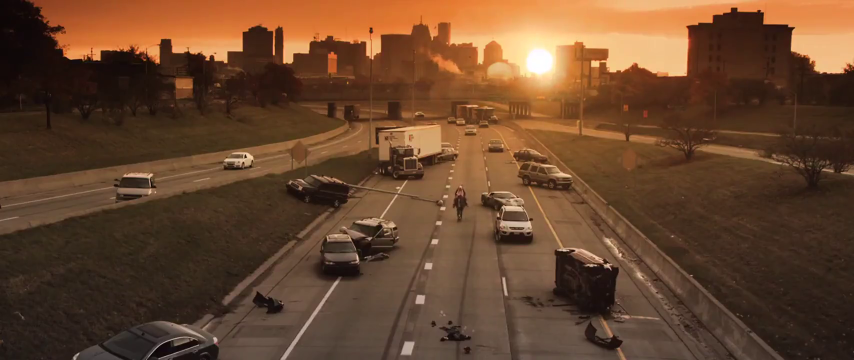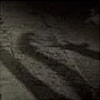By Jonathan Wojcik
ENTRY 02: VANISHING ON 7TH STREET
As he explores, night begins to encroach slightly earlier than it even should, and he too witnesses a fellow survivor swallowed up by the dark. Finding the power out through most of the city, he finally discovers a bar still illuminated by its own generator, where he meets James Leary (Jacob Latimore) a little boy left to guard the safe haven until his mother comes back with more supplies.
As it turns out, Paul's headlamp had only flickered out for a split second, not long enough for him to be taken completely. What he experienced, however, still felt like three entire days of suffocating or "drowning" as he struggled and fought back against formless assailants in a pitch dark abyss.
It's then that nearby televisions come alive with some sort of pirate broadcast; a physicist sending out a warning to anyone still alive. He states that the phenomenon remains unexplainable, but that the force is sentient enough to play tricks on people's minds, that the darkness even called to him with the voice of his late brother and that you can "only trust your own light."
James, however, is just fine....returning from the other room to find Paul's empty clothing right where he left him. Now with only two survivors remaining, Luke resolves to leave with James, but the child is positive that his mother should be waiting for him at their church. Luke is reluctant and pessimistic, but ultimately helps the boy reach the church shortly before Luke at last succumbs to the shadows himself.
In a callback to some earlier dialog, James shuts his eyes and begins repeating to himself: I exist. I exist. I exist. He keeps chanting the mantra as the candlelight weakens, and finally the scene goes black.
In the end, it's impossible to say if James survived thanks to his conviction to "exist" or if the phenomenon itself is actually drawing closer to some kind of conclusion. We also don't know how long he lay there in the Church before opening eyes, nor how long the kids have been walking in that final shot, so there's no telling if the days are still continuing to shorten or slowly returning. All we know is that, unless we're dealing with a localized distortion of reality or area effect, the vast majority of people on Earth are already gone.
Maybe I've just been desensitized by a lot of horror manga, creepypasta and pulp sci-fi fantasy, but this is far from the wildest notion we've seen from spooky media, right? I'm not alone in thinking maybe these folks need to branch out a bit more? Of course, if you branch out enough, your response to this story might just swing in the opposite direction, and you'll find yourself wishing it had only been stranger, since I certainly felt as if it could have been pushed a tad farther.
MONSTER REVIEW: THE DARK

The monster in this movie is "darkness" itself, in a more literal sense than we're used to from countless magical fantasy settings that conflate it with some mystic force of evil or death. You could easily interpret the entity or entities in this movie as ghostly, demonic, lovecraftian or even extraterrestrial if you like, but I prefer the interpretation that the sheer absence of light has somehow been imbued with a malevolent will; that shadows themselves have become monstrous, rather than a convenient place for the monstrous to hide.
When Luke replays those final minutes of recorded news footage, the weather report and "unusual storm" seem to take center stage, but a preceding line of dialog piqued my interest a little more: that Luke himself had been investigating the scandal of "security breaches at a nuclear power plant." There's also a scene in which Paul rattles off a long list of explanations he considered, and among the last he gets out before he's rudely interrupted involve dimensional rifts and particle accelerators. Though other characters assume it's some religious event, I think the narrative is meant to give a more science-fantasy impression, and that the nature of reality may very well have been broken by scientific experimentation.
If you want the wild speculation my own thoughts jumped to from there, what if this is actually one of those "psychic projection" situations? Something manifesting into existence from the human imagination? Fear is arguably the most powerful and fundamental of all emotions, and the most universal, most primordial fears of humankind revolve heavily around darkness, nothingness, oblivion and the unknown; absences of light, of life and even of yourself. In this story, the dark becomes something that consumes people and erases their identity, dissolving them into a part of itself, somehow bending the very laws of nature to its benefit as it grows stronger.
The writer really could have been thinking more along the line of demons or ghosts for all I know, but I personally think this is exactly the "monster" humanity would face if the collective subconscious of our entire species were suddenly capable of affecting the surrounding reality at all. Not enough for us to be aware of it or control it, but more than enough to bring horrible, horrible life to the oldest, purest terrors rooted deepest in the most ancient, reptilian depths of several billion disastrously imaginative brains.
I could be way off the mark, sure, but it makes sense to me. It would even explain the particular way James fended it off! Why, the only loose thread in my version is just who could have possibly screwed with nuclear physics that badly.

